Chapter 4 Expectations and Responsibilities
4.1 Everyone
4.1.1 Big Picture
We expect everyone to:
- Be supportive - We’re all in this together!
- Share your knowledge. Mentorship takes many forms, but frequently involves looking out for those who are more junior to us. If you’ve done something before, share your experience. We are a team and we should work together.
- Be engaged in the community.
- Attend and actively engage in lab and one-on-one meetings. Ask questions, make suggestions, etc. If you are easily distracted by technology, disconnect during meetings.
- Attend talks in the CVL, BBS, and greater UTD community.
- Be an positive representative and advocate for our lab and our lab’s work in our larger research communities.
- Attend and actively engage in lab and one-on-one meetings. Ask questions, make suggestions, etc. If you are easily distracted by technology, disconnect during meetings.
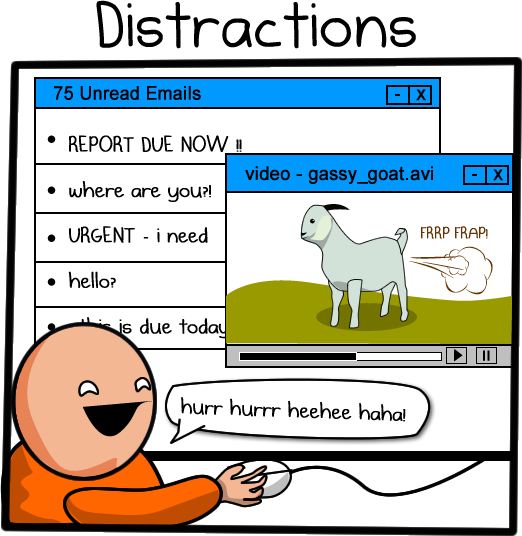
- Be independent when possible, ask for help when necessary. Specifically, ask three, then me!
- There are lots of web resources you should consult - StackOverflow, NeuroStars, etc
- Use others in the lab (and in the CVL, BBS) and external collaborators.
- There are lots of web resources you should consult - StackOverflow, NeuroStars, etc
- Communicate honestly, even when it’s difficult.
- Do work we are proud of individually and as a group.
- Double check your work.
- Our lab has a commitment to open science. Be ready to share your work both within the lab and with outsides at the conclusion of a project.
- Double check your work.
- Work towards proficiency in Unix, BASH, R, and Python.
- Respect each other’s strengths, weaknesses, differences, and beliefs.
- Be patient with everyone (including the Lab Director). Most of us are learning new skills and are busier than we would like.
- Adhere to the ethical principles as described by the Association for Psychological Science, Society for Neuroscience, and UT Dallas Responsible Conduct of Research.
- Maintain a professional and accurate online presence. Make sure you keep your online profiles up to date. Remember, we all represent the lab and the lab represents us.
4.1.2 Small Picture
We’re sharing a relatively small space, so please be thoughtful of others. Specifically:
- Do not come into the lab if you are sick! It’s better to keep everyone healthy. If you are sick, email your mentor and the lab manager.

- Keep the lab neat.
- Do not leave food, drinks, or crumbs in the lab.
- Items left unattended may be cleaned, reclaimed or recycled.
- Do not leave food, drinks, or crumbs in the lab.
4.2 Lab Director
As the lab director, you can expect me to:
- Have a vision for where the lab is going, both in the short-term (next few weeks) and in the long-term (next few years).
- Obtain funding to support our laboratory.
- Care about your happiness.
- Support your career development, including:
- writing recommendation letters,
- introducing you to other scientists (potential future mentors and colleagues),
- promoting your work as often as possible (at conferences),
- facilitating conference travel (see position-dependent specifics below), and
- working with mentees (Postdocs, Mentees) to create an Individual Development Plan (IDP).
- writing recommendation letters,
- Support your personal development, including:
- flexible working hours and environment (when feasible), and
- encouraging activities outside of school/work.
- flexible working hours and environment (when feasible), and
- Make the time to meet with you regularly, read and provide feedback on code, posters, manuscripts, and other data products.
- Obsess over chosing the correct analyses, clear phrasing, and awesome data visualizations.

Please understand that as a faculty member, I have numerous jobs that you may or may not see me perform. These include teaching, research, and service.
Teaching can include:
* creating lecture slides, assignments and assessments,
* managing teaching assistant/s,
* delivering lectures,
* grading, and
* holding office hours.
Research can include:
* writing grant proposals and progress reports,
* designing experiments,
* setting up research protocols,
* cleaning and analyzing data,
* writing and revising manuscripts,
* manging communication and participant recruitment (website, twitter, etc) and
* managing/mentoring research staff and volunteers.
Service can include:
* reviewing grant proposals and journal manuscripts,
* reviewing dissertation and other project proposals,
* reviewing dissertations, Master’s and Honor’s theses,
* reviewing program or award applications,
* planning brown bag lunches, workshops, or conferences, and
* serving on CVL, Psychology/BBS, or UTD committees.
Because I am juggling all these tasks, I am going to ask you to do some things to help keep things organized. These details are included in the “Managing Up” section of the Communication chapter.
4.3 Employees
Employee salaries follow the UTD paygrade.
4.3.1 Lab Manager
The lab manager is the heart and soul of the lab. While other lab members (including the Lab Director) may have flexible or irregular schedules, the lab manager will be a constant presence for the lab in the Center for Vital Longevity (CVL).
In order to provide constency for the lab, I expect the lab manager to:
- maintain regularly scheduled hours on weekdays (e.g. 9am-5pm, except for UTD holidays),
- serve as a liason between the the CVL administrative staff and our lab,
- check the lab email and personal work email accounts daily and respond to all emails within two business days, and
- check the voicemail daily and arrange for return calls to be made within one business day.

The Lab Manager’s primary responsibilities include:
- facilitation access to the physical lab space for lab members,
- facilitating the purchase and setup of any new equipment for the lab,
- coordinating and training all lab research assistants,
- assisting with the design and implementation of behavioral, eye-tracking, and fMRI experiments,
- overseeing the recruitment and testing of study participants, and
- helping with preprocessing and analysis of experimental data.
4.3.2 Paid post-bacc Research Assistants
TBD
4.3.3 Postdocs and Staff Scientists
I will expect postdocs and staff scientists to move towards being more PI-like, including:
- giving conference talks,
- writing grant proposals, and
- cultivating an independent research program (up to 10% of time).
I also expect postdocs and staff scienstists to be active, engaged lab members. This includes:
- maintaining a regular physical presence in the lab (specific days/times can be discussed with Dr. Seaman), and
- attend lab, small-group, and one-on-one meetings as needed.
Also, to have (or acquire) the technical and open science skills listed for PhD students below.
Postdoc salaries generally follow NIH guidelines.
4.4 Students
4.4.1 PhD Students
I will expect graduate students to:
- attend classes, colloquium, and relevant talks around campus,
- maintain a physical presence in the lab (e.g. keep regular hours in the lab MWF during academic year),
- be excited about the research questions they are asking, be eager to find the answers, and anxious to share their results with others,
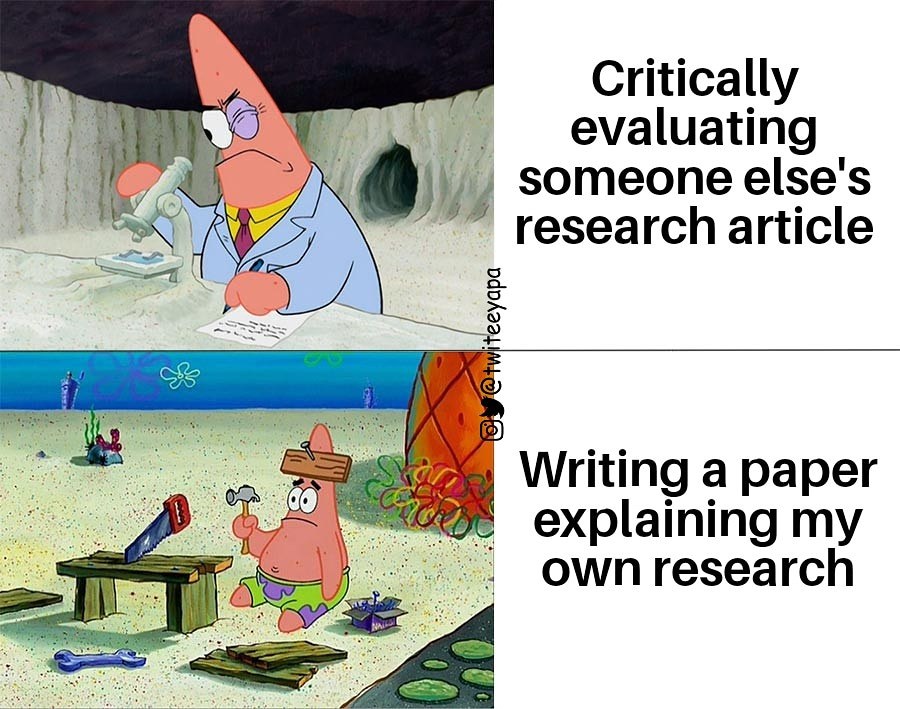
- seek out and apply for fellowships and awards (including travel awards), and
- realize there are times for pulling all-nighters and times for smelling the roses.
I will expect graduate students to move towards:
- expertise in their chosen field(s) by knowing the literature like the back of their hand (see below for suggestions on how to do this),
- proficiency in using R and/or Python for data analysis and model fitting,
- writing BASH shell scripts for imaging analysis in FSL,
- sharing your work with me (and others) using R Markdown and/or Jupyter notebooks,
- preregistering their experiments publicly on OSF,
- sharing their data and scripts publicly on OSF and/or GitHub,
- making figures and posters using R or Python along with Adobe Illustrator,
- clearly communicating your results in written and verbal formats, and
- actively mentoring those working for them (undergraduate RAs), including completing an Individual Development Plan (IDP).
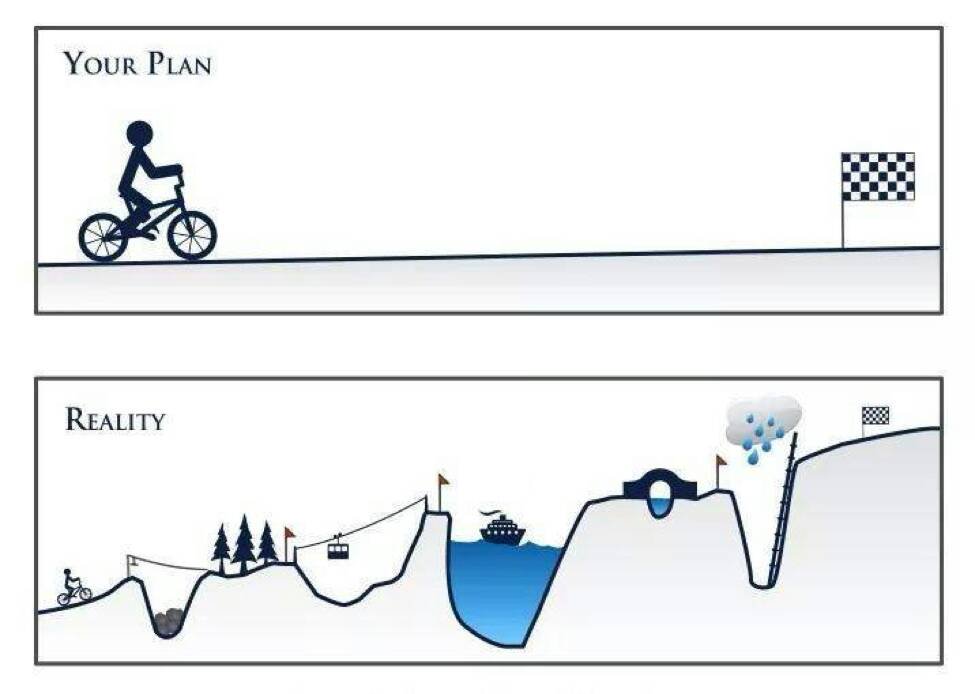
The learning curve for these skills can be steep, but developing these skills is necessary for success in both cognitive neuroscience and data science. If these goals do not align with your own interests and goals, then my lab is probably not a good fit for you.
4.4.2 Master’s Students
I will expect Master’s students to move towards being more PhD student-like. In particular, by the end of their time in the lab, I expect master’s students to:
* complete an empirical study in the lab, and
* complete a poster and/or written manuscript of that study.
All Master’s students will be required to enroll in directed research and/or independent study. The expectation is that you will work 3 hours/week in the lab for each credit hours (1 credit = 3hrs/week, 2 credits = 6hrs/week, 3 credits = 9 hrs/week). Students can enroll in the appropriate section of HCS 8V89 with Dr. Seaman.
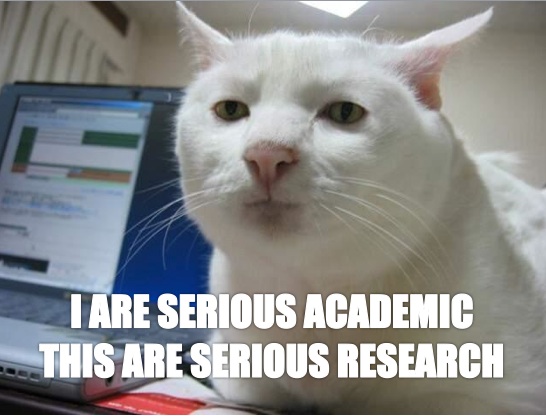
4.4.3 Undergraduate Students
Undergraduate students will play a vital role in our lab. Students can be involved in the lab in a number of ways, including independent study projects, student work, and internships. Given that we have limited time and resources, unfortunately we cannot accept or keep all undergraduates who are interested in our lab. Based on the lab’s needs, we will consider new undergraduates at the beginning of each term. Each new undergraduate must attend a mandatory orientation session, journal club, and serve a probationary term (one semester) before advancing further in the lab.
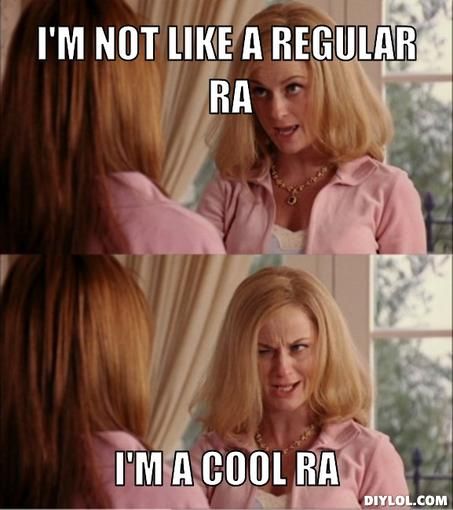
I expect undergraduates to:
- commit to work at least 5 hours per week in the lab and maintaining those hours on the lab calendar,
- show up on time for meetings, lab hours, and testing,
- make sure all of your work is accurate (double-check everything), and
- be willing to help with whatever projects need it.
In most cases, undergraduates will be directly mentored by the lab manager, postdoc, or graduate student. Occasionally, a Master’s student or a senior undergraduate research assistant will mentor research assistants.
All undergraduate students will be required to enroll in directed research and/or independent study. The expectation is that you will work 3 hours/week in the lab for each credit hour (1 credit = 3hrs/week, 2 credits = 6hrs/week, 3 credits = 9 hrs/week). BBS students can find the appropriate form at https://bbs.utdallas.edu/files/independent-study-courses.pdf.
4.5 Project Leads

More experienced lab members (postdocs, graduate students, advanced undergraduate students) may be asked to lead a project in the lab, making them a project lead. In addition to coordinating research efforts, it is important to acknowledge that this is a leadership position. This means that you will most likely be repsonsible for supervising/mentoring some of your peers in the lab.
As a project lead, you will have additional responsibilities. These include:
* coordinating with Dr. Seaman on all aspects of the project,
* training your project team on data collection protocol and standard operating procedures for the lab,
* meeting regularly (e.g. every two weeks) with your project team to discuss the project’s process, and
* mentoring those on your team (though the review of expectations and rec letter forms at beginning of each semester).
4.6 Exit Procedures

When it’s time to leave the lab, there a few things you need to do get ready to leave.
- Schedule an exit interview with your mentor to wrap up your time in the lab.
- Return your CVL access card/Lab keys to appropriate CVL administrative staff.
- Get organized! Clean up your folders on the lab Box account and any physical computers. This means:
- Deleting any personal files.
- Making sure that everything you were working on is clearly documented. Create and/or update the README file for any project folders.
- Make sure all computer files have descriptive names.
You may be wondering what you can take with you when you leave. You are welcome to take copies of any posters, manuscripts, or scripts that you created during your time in the lab. However, do not remove any AWL data from AWL/CVL/UTD storage devices. During your exit interview, we can make arrangements to share the appropriate data with you if it is not already publicly available.